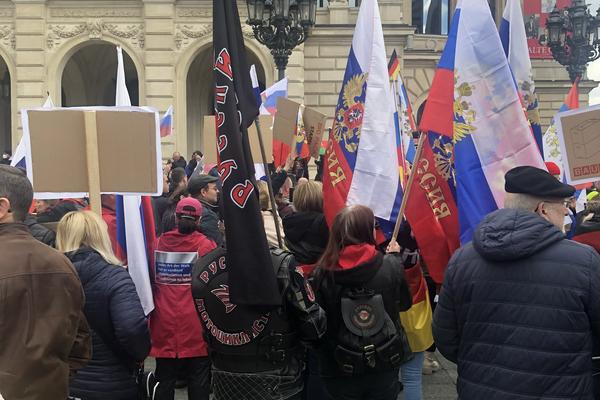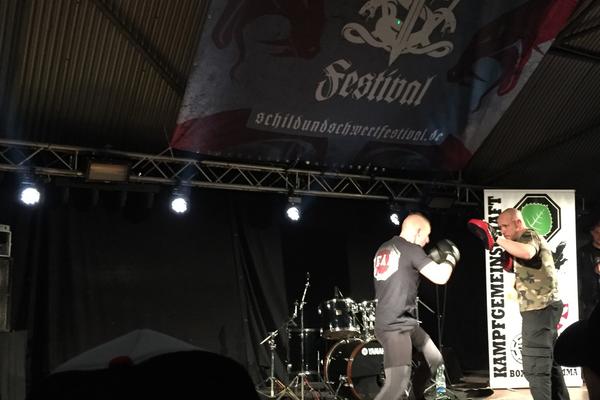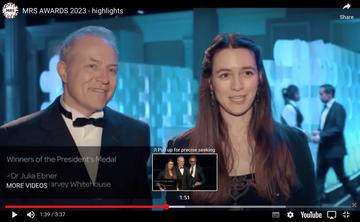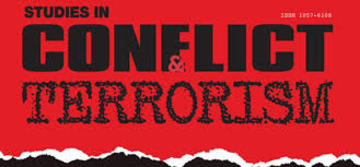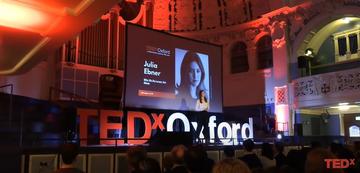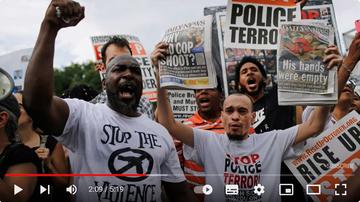The Violent Extremism Lab
The Violent Extremism Lab
The goal of the Violent Extremism Lab is to understand the psychology that leads to self-sacrificial violence – whether in the form of suicide terrorism or the high-risk strategies of dictators that may lead to their own demise but only after many others have been brutally killed. There is growing evidence that such behaviour is often motivated by identity fusion – an extreme form of social cohesion whereby an individual’s personal identity becomes fused with that of the group. Highly fused individuals will stop at nothing to defend the group when it is imperiled. Our violence risk assessment research can help understand psychological indicators of proneness to violent action before the signs of a planned intervention become visible in operational or military activities. An important advantage of our framework is that it can be applied to state and non-state actors in different demographic, economic, cultural and religious contexts. As the relevant variables are revealed unconsciously in speech, they also reach beyond strategically chosen words of escalation or de-escalation and promise to provide a more reliable predictor than explicit threats to violence.
Key Questions
Learn more about our approaches to the key questions guiding this research.
Funded by an Advanced Grant from the European Research Council as well as a PhD studentship from the UK’s Economic and Social Research Council and St John’s College, our lab group has been busy analysing the language and narratives used by violent extremists with the aim of improving detection and prevention practices in the field of counterterrorism. Security and intelligence services, as well as social media companies, have long been trying to gain a better understanding of the communication patterns that distinguish violent extremist and terrorists from those who merely express extremist beliefs but present no real threat. Our award-winning research takes these efforts to a new level. Our research is based on the fusion-plus-threat model which integrates previous empirical findings on group alignment and identity, psychological kinship, and parochial altruism to form a theory that makes specific predictions about the role of in-group identity fusion and out-group threat perception as drivers of violent extremism.
Funded by the Calleva Research Centre for Evolution and Human Science at Magdalen College, Oxford – with additional support from The British Academy and the Airey Neave Trust – our lab group is now also investigating the role of the fusion-plus-threat model in explaining the seemingly irrational behaviours of heads of state who engage in extreme forms of violence against their own populations or go to war when the costs seem to outweigh the benefits. For example, prior to the visible changes in Russia’s military activities in 2021, most experts would have considered a Kremlin-led aggression war in Ukraine an unlikely scenario. Like Vladimir Putin, the willingness of many leaders to translate hawkish words into action has proven hard to predict. How seriously should we take Kim Jong-un’s aggressive threats? How dangerous are countries led by ideologically extreme figures such as Iran under Ebrahim Raisi or Afghanistan under the Taliban? What about Erdogan or Min Aung HIaing who both have a history of violence against their own populations? And most importantly, might there be an underestimated threat emerging in countries that are currently not on the radar of the diplomatic, defence and intelligence communities?
Events
Outputs
-
Ebner, J., Whitehouse, H. (2026). Mapping Threats from Terrorists and Tyrants. The British Academy. -
Busher, J., Ebner, J., Harris, G., Hacsek, Z., & Macklin, G. (In Print). The relational dynamics of violence escalation and inhibition during far-right protest waves. American Behavioural Scientist.
-
Kristinsdottir, K., Freestone, M., Underwood, A., & Ebner, J. (2025). Pathological fixation on shared beliefs: A review and bibliometric analysis of extreme, overvalued and delusion-like beliefs. Frontiers in Psychiatry.
-
Lopez-Buarque, Kingdon, Czerwinsky, Ebner et al. (2025). Written evidence for Combating New Forms of Extremism. United Kingdom Parliament Home Affairs Committee.
-
Buhrmester, M., Swann Jr., W., McQuinn, B., Everington, A., Hafid, L., and Whitehouse, H. (2025). Examining Shifts in Group-Based Motivations for Civil Conflicts in Libya. New England Journal of Public Policy, 37.
-
Lestari, M. D., Putra, I. E., Kavanagh, C., Muzzulini, B., Swandi, N. L. I. D., Harumi, B. P. Y., Whitehouse, H. (2025). Bali Bombing's memories and past traumatic events among Balinese. Peace and Conflict: Journal of Peace Psychology.
-
Stojanov, A., Fridberg, D., Ebner, J, Whitehouse, H. & Halberstadt, J. (2025). Conspiracy, Control, and Extremism: A Psychological Examination of Radical Behaviour, American Psychological Association. To be published
-
Kristinsdottir, K., Ebner, J., Whitehouse, H. (2025). Extreme overvalued beliefs and identities: revisiting the drivers of violent extremism. Frontiers in Psychology, 16.
-
Ebner, J., Whitehouse, H. (2023). Identity and Extremism: Sorting out the causal pathways to radicalization and violent self-sacrifice. The Routledge Handbook on Radicalization and Countering Radicalization. Abingdon: Routledge.
-
Ebner, J., Kavanagh, C., Whitehouse, H. (2023). Assessing Violence Risk among Far-Right Extremists: A New Role for Natural Language Processing, Terrorism and Political Violence.
-
Ebner, J., Kavanagh, C., Whitehouse, H. (2023). Measuring socio-psychological drivers of extreme violence in online terrorist manifestos: an alternative linguistic risk assessment model. Journal of Policing, Intelligence and Counter Terrorism, 19(2), 125–143.
-
Ebner, J., Kavanagh, C., Whitehouse, H. (2022). The QAnon Security Threat: A Linguistic Fusion-Based Violence Risk Assessment, Perspectives on Terrorism, Special Issue on Anti-Government Extremism, 16(6): 62–86.
-
Ebner, J., Kavanagh, C., Whitehouse, H. (2022). Is There a Language of Terrorists? A Comparative Manifesto Analysis. Studies in Conflict & Terrorism, 1–27.
-
Whitehouse, H. (2019). Terrorism: The Dark Side To Group Love. Interactions, 1(4).
-
Whitehouse H. (2018) Dying for the group: Towards a general theory of extreme self-sacrifice, Behavioral and Brain Sciences, 41: e192
- Whitehouse, H. (2025) Psychology can be harnessed to combat violent extremism, Wired
- Whitehouse, H. (2016) What motivates extreme self-sacrifice?, Pacific Standard
-
Whitehouse, H. (2014) Libyan bands of brothers show how deeply humans bond in adversity, The Conversation
-
-
-
-
Julia Ebner on Talking about extreme online violence with young people: advice for parents
The Guardian
24 January 2025 -
Julia Ebner on Talking about extreme online violence with young people: advice for parents
The Guardian
24 January 2025
-
Julia Ebner on The changing violent extremist threat landscape and implications for the UK's terrorism definitions
22 January 2025
-
Julia Ebner on Experts warn of dangers of violent content being readily available online
The Guardian
21 January 2025 -
04 November 2024
-
Online Radicalisation: A Contested and Contestable Term - Reviewed by Joshua Sinai
Perspectives on Terrorism
30 October 2024 -
-
-
-
-
How did the far right win in Austria? To understand, look to its global networks
The Guardian
30 September 2024
-
Researcher gives analysis of far-right extremism following UK riots
Magdalen College, University of Oxford
16 August 2024
-
Extremism Researcher Julia Ebner Receives Prestigious Open Society Prize of Central European University
Central European University
21 June 2024
-
Work to predict extreme violence amongst online users wins MRS Presidents Medal
School of Anthropology & Museum Ethnography, University of Oxford
4 December 2023
-
Six Oxford social science researchers awarded at prestigious 2023 ESRC Impact Awards
Social Sciences Division, University of Oxford
16 November 2023
-
From ‘study guides’ to trolling raids: how UK far-right groups target children online
The Guardian
3 August 2022
-
From memes to race war: how extremists use popular culture to lure recruits
The Washington Post
30 April 2021
-
How jihadism and the far right have more in common than you'd think
The Independent
14 November 2017
-
The far right has learned to mobilise and radicalise. Charlottesville’s a wake-up call
The Guardian
14 August 2017
Julia Ebner | The Language of Terrorists | Addison's Walk Podcast | Magdalene College
Julia Ebner & Harvey Whitehouse | Using Research to Understand Drivers of Extremism
Julia Ebner | Why We No Longer Get Along | TedxOxford | Tedx Talks
Julia Ebner | The UK's counter terror strategy | BBC Newsnight | Institute for Strategic Dialogue
Harvey Whitehouse | Quelling radicalization | World Economic Forum
Julia Ebner | Helping predict real world violence among online users | ESRC Celebrating Impact Prize 2023
Julia Ebner | ISD's Julia Ebner on 'Is there a growing far-right threat online?' (BBC News) | ISD
Julia Ebner | Germany's New Nazis | BBC Panorama | 19 September 2017
Julia Ebner | The Enemy Within: The Far Right: Dispatches | Channel 4 | 9 May 2022
Julia Ebner | Portrait of Violent Extremism Lab at Magdalen College | Austrian Broadcasting Corporation ORF | 2025
Prof Harvey Whitehouse | Overcoming Tribalism | Quiet Riot
Julia Ebner | Can the sensible centre resist the onslaught of extremist conspiracy theories? | ASPI
Julia Ebner at 13:16 | The World of Incels | BBC Radio 4 Woman's Hour
Julia Ebner | Julia Ebner on How Extremism Threatens Democracy | Central European University
Julia Ebner | on Violent Extremism | Social Science Bite


